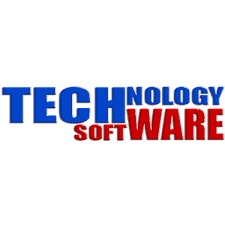Beruju Management System
Beruju Management System
The Beruju Management System (BMS) refers to a comprehensive framework designed for managing the intricate processes involved in Beruju operations. Beruju, in various contexts, could represent a specific type of asset, resource, or even a specialized process within an organization or community. The term ‘Beruju’ itself might be specific to certain cultures, industries, or applications, and thus, the management system surrounding it could be highly specialized. However, without a universally recognized definition of “Beruju” in widely accepted professional or technological lexicons, we’ll consider it a hypothetical or specialized term and proceed to outline what a management system tailored for it might entail, focusing on general principles of asset or resource management systems.
Features
Inventory Tracking: Central to any management system, inventory tracking for Beruju would involve detailed records of each asset, including acquisition, current status, location, and other pertinent details. This component ensures that all Beruju assets are accounted for and properly managed throughout their lifecycle.
Maintenance Scheduling: Regular maintenance is crucial for the longevity and reliability of any asset or process. BMS would incorporate a scheduling system for routine checks, repairs, and preventive maintenance, ensuring that each Beruju remains in optimal condition and reduces the likelihood of unexpected failures.
Performance Monitoring: By continuously monitoring the performance and utilization of Beruju assets, the system can provide valuable insights into their efficiency, usage patterns, and potential areas for improvement. This data-driven approach aids in making informed decisions about asset management, upgrades, and procurement.
Compliance and Standards: The system would ensure that all operations and processes involving Beruju adhere to relevant industry standards, regulations, and best practices. This is crucial for maintaining quality, safety, and compliance with legal and regulatory requirements.
Resource Allocation and Optimization: Efficiently managing and allocating Beruju resources to where they are most needed or will be most effective is a key functionality. The system would use data analytics to optimize the use of assets, reducing wastage and improving overall operational efficiency.
Integration Capabilities: Recognizing that Beruju management does not operate in isolation, BMS would be designed to integrate seamlessly with other management systems within the organization, such as financial systems, HR management, and supply chain logistics, providing a holistic view of operations and facilitating better coordination across departments.
Security and Data Protection: Given the likely importance and value of Beruju assets, the management system would include robust security measures to protect against theft, loss, or cyber threats. Data protection, especially in compliance with relevant data privacy laws, would be paramount.
User Interface and Accessibility: An intuitive user interface and accessibility features would ensure that the system is user-friendly and accessible to all authorized personnel, including those with disabilities. This enhances user engagement and ensures that the system is effectively utilized.
Benifits
Enhanced Efficiency and Productivity: Streamlines processes and reduces the time and effort required to manage Beruju assets.
Improved Decision-Making: Offers real-time data and analytics for informed decision-making and strategic planning.
Cost Reduction: Identifies areas for cost savings, reduces wastage, and optimizes resource utilization.
Compliance and Quality Assurance: Ensures adherence to regulations and maintains high standards of quality and safety.

